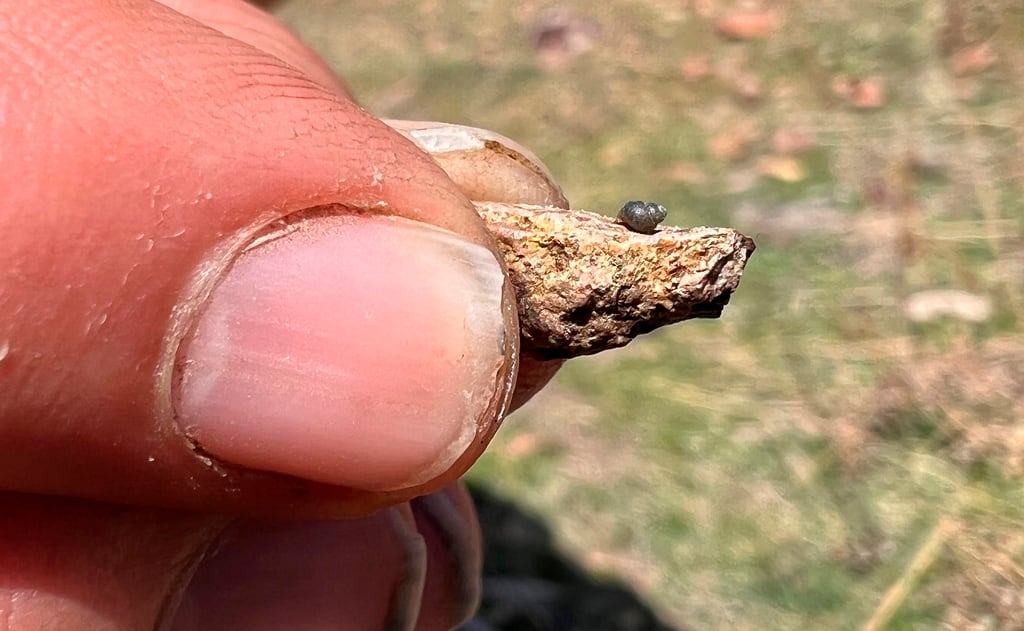RENO The largest lithium mine in the country is now being built, and its opponents want U.S. regulators to look into whether the Nevada project has already lowered groundwater levels to the point where a tiny snail that is protected as an endangered species could become extinct.
In response to what they claim is fresh information supporting their worries with Lithium America’s proposed open pit mine at Thacker Pass, environmentalists and Native American activists are calling on the U.S. Interior Department to take action. About nine square miles will be covered by mine operations.
After a federal judge and an appeals court rejected Native American tribes’ earlier attempt to have federal agencies acknowledge the area’s sacredness, the snail’s fate has taken center stage. The tribes contended that the mine would cross over into territory where, in 1865, American forces slaughtered dozens of their relatives.
In a notice of intent to sue, the Western Watersheds Project and the People of Red Mountain organization claim that the government and Lithium Americas, a Canadian company, are not fulfilling their obligations to sufficiently monitor the effects on groundwater.
They say it’s concerning that Payton Gardner, an assistant professor of hydrogeology at the University of Montana, analyzed groundwater data from a nearby well and found that the water table had dropped by about five feet since 2018. Although they have promised to keep an eye on the problem for the duration of the mine’s existence, Nevada officials said they currently do not have any information that would confirm lowering levels.
No snail, no water
The Kings River pyrg, which is barely larger than a grain of rice, has survived in 13 solitary springs in the basin that surrounds the mining site. The snail lives there and nowhere else in the world.
The small animals may need just a few centimeters of water. However, if the groundwater system that supplies the springs starts to decline, the chances of survival get smaller, according to Paul Ruprecht, Nevada Director for the Western Watersheds Project.
According to him, even little changes to its habitat could result in dry springs, which would wipe it out.
The U.S. Fish and Wildlife Service is allegedly breaching the Endangered Species Act by delaying its decision on a 2022 petition to label the snail as threatened or endangered, according to Western Watersheds Project and the other opponents. The claims made in the opponents’ notice come after federal biologists were asked to look into whether groundwater drawdowns are being brought on by exploratory drilling and other activities, as well as whether the springs have been impacted.
Ruprecht worries that if the snail isn’t protected, it will fall victim to the lithium boom once more.
Although the government declined to comment on the demands for an investigation into the groundwater issues, the Fish and Wildlife Service is reviewing the snail’s status.
An environmental conflict could be sparked by a lithium pile on the Nevada–Oregon border.
Three Australian businesses are interested in mining the white gold in the portion of the deposit located in Oregon.
Set to take the lead in the manufacturing of lithium
Many legal conflicts have arisen over the decades as a result of attempts to mine gold and other minerals in Nevada and other Western states, raising concerns about possible harm to water supplies and wildlife. The demand for lithium, a metal essential to the production of batteries for electric vehicles, is predicted to increase dramatically over the next ten years, making it no exception.
The U.S. Energy Department agreed last year to lend Lithium Americas more than $2 billion to help finance construction at Thacker Pass, as part of President Joe Biden’s energy program, which prioritized greater manufacturing of electric vehicles. Lithium Americas declared on December 23 that it and General Motors Holdings LLC had reached an agreement to jointly build and run the mine.
The largest and closest to completion mine in the United States is located around 30 miles south of the Oregon-Nevada border. It is followed by Pioneer’s Rhyolite Ridge project, which is located close to the California border, midway between Reno and Las Vegas.
Additionally, in late December, the Bureau of Land Management declared that it was looking for feedback on a another project that was being considered in northeastern Nevada. Elko County is the target of a lithium exploration project by Surge Battery Metals USA.
Keeping an eye on groundwater
According to Ruprecht, data submitted to state regulators by Lithium Americas’ environmental consultant indicate that the firm no longer has authorization to enter private properties where a number of monitoring wells are situated. According to him, this makes it more difficult to determine whether previous drilling has affected flows.
According to Nevada officials, the monitoring plan was modified in 2024 to take into consideration the loss of access to wells on private property.
According to earlier data, groundwater levels have not changed between the 1960s and 2018. In 2023, construction got underway at the location.
When the mine was approved by the Bureau of Land Management, it was accepted that a certain amount of groundwater level reduction was possible, but it would take decades and probably only happen if state officials allowed the firm to dig below the water table.
Tim Crowley, a spokesman for Lithium Americas, stated that it seems the mine’s opponents are attempting to reframe problems that have already been discussed and settled in court. He cited the company’s ten years of data collection, which showed the project would not have an impact on the snail.
The Associated Press
Note: Every piece of content is rigorously reviewed by our team of experienced writers and editors to ensure its accuracy. Our writers use credible sources and adhere to strict fact-checking protocols to verify all claims and data before publication. If an error is identified, we promptly correct it and strive for transparency in all updates, feel free to reach out to us via email. We appreciate your trust and support!







